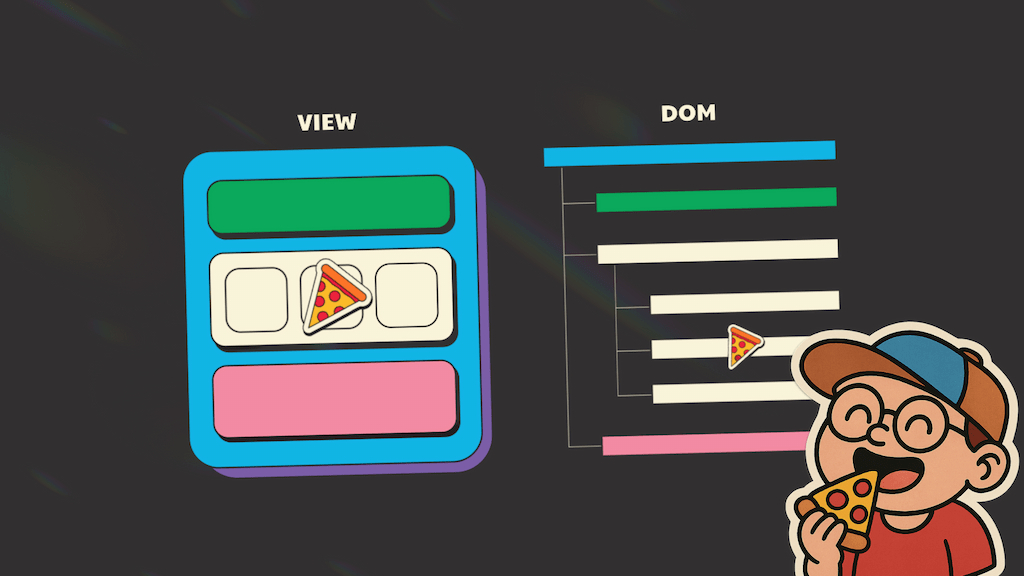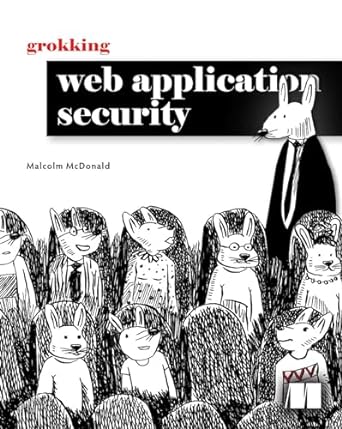|  | Hello,
Today’s issue is, in many ways, about the future of the web. Yes, it’s been on my mind quite a bit lately. From deep dives into the fundamentals of React, to Mozilla’s latest push to protect browser competition, to fresh updates from Google I/O that aren’t (only) about AI, this week’s collection feels like it forms a narrative of its own: from the early days of the web to what’s coming next. It’s a reminder that the web is still evolving in meaningful ways, and that we, as developers, have a role in shaping where it goes. So don’t be afraid to form your own opinions and get involved in whatever way makes sense to you. Your voice matters.
You’ll also find a few picks that lean more into the practical side of things: keeping React apps secure, using React components to build actual hardware (yes, really), and seeing React Server Components take shape outside of Next.js. There’s plenty to chew on, like a juicy, crunchy pizza slice. Sorry, I had a great one yesterday and it’s still living rent-free in my brain.
As always, thanks for reading and for being part of this curious, thoughtful corner of the web. It's great to have you here! And feel free to reply to this email to just say hello, I am always happy to connect more directly with each and every one of you!
Happy reading and coding,
— Luciano | “Never trust a computer you can't throw out a window“ — Steve Wozniak , Entrepreneur | 
| React, from the ground up — I’ve been building for the web for almost 20 years. In that time, I’ve seen frameworks come and go, paradigms rise and fall. But through all the noise, one thing has stayed constant: the fundamentals. How browsers render pages, how the DOM works, how events flow through the system. These are the roots. That’s why React Visualized immediately stood out to me. It doesn’t just teach React. It starts with where the web began and walks forward from there, showing how React builds on the core ideas that have been around for decades. The visual approach makes the concepts click, but it’s the framing that makes it powerful. React isn’t magic. It’s a smart abstraction over what browsers have always done. This resource helps you see that clearly. Read article | You can design Electronics with React Components — I’ve never been big on electronics. I dabbled now and then, but it always felt like a foreign world. One I wasn’t really part of. That might be why TSCircuit caught my attention. It brings electronics into the realm of React, which suddenly made the whole thing feel less alien. With this free, open-source tool, you can design circuits using actual React components. You build schematics, generate PCB layouts, and even prep for manufacturing, all inside a setup that feels oddly familiar if you come from the web world. If you’ve been curious about electronics but never quite found the right doorway in, this might be the perfect excuse to take the first step. Read article | Are HTML Emails Accessible in 2025? — If you’ve ever felt like HTML emails live in their own frustrating little world, the 2025 accessibility report from the Email Markup Consortium will feel very familiar. Released just after Global Accessibility Awareness Day, the study looked at over 443,000 real-world emails. Only 21 passed all automated accessibility checks! ... and all of those came from the same author! Isn't this crazy and worrying? The most common issues were things like missing language and direction attributes, poor contrast, unhelpful link text, and alt text that technically exists but doesn’t add meaningful context. It’s the third year with nearly identical results, reflecting the same stagnation seen in WebAIM’s broader accessibility findings. This article is an opinionated summary, so if you want to know all the details, check out the full report goes which goes deeper, especially into which email clients support which accessibility features. Read article | React Router RSC Preview — I’ve been deep in React lately, especially trying to wrap my head around the client and server boundary. So if I sound like a broken record, bear with me. This one is genuinely exciting. React Router (previously Remix) just released preview support for React Server Components. You can load RSCs through existing loaders and actions, or try out new server-first routes. It also supports "use client" and "use server", along with middleware for batching and caching. It’s still early and running on Parcel for now, since Vite doesn’t support RSC yet. But it’s a promising step toward something a lot of us have been hoping for: more concrete alternatives to Next.js for running React on the server. Read article | Security practices for React + TypeScript — I’ve been using DomPurify recently to sanitize markdown content coming from a CMS, so security has been on my mind. That’s why I appreciated this article. It’s a solid reminder of the kinds of issues that can slip through the cracks when working with React and TypeScript. It covers things like the risks of using any, how prop validation can affect safety, and why escaping content properly is essential to avoid XSS. There’s also mention of SSR and safe handling of data between client and server. Nothing too advanced here, but it reinforces a simple point. Security should not be an afterthought. It should be part of how we build, how we think, and how we work every day. Read article | Google I/O 2025 was not just about AI! — Google I/O was packed with wild announcements this year, most of them orbiting around AI in one form or another. But in the middle of all that noise, I wanted to call out this update that focuses squarely on the web platform itself. The latest roundup from the Chrome team covers improvements in performance tooling, new CSS features, progress on baseline compatibility, and updates to WebAssembly and WebGPU. It’s a solid look at where the web is headed, beyond just AI hype. Read article | The future of the web depends on getting this right — And speaking of the future of the web, as the U.S. vs. Google search antitrust case wraps up, Mozilla is urging the court not to adopt remedies that could accidentally harm browser competition. One proposal would ban Google from sharing search revenue with independent browsers like Firefox. Mozilla argues this would cripple their ability to fund development of Firefox and the Gecko engine, the only real alternative to Apple and Google’s browser stacks (yes, commendable alternatives such as Ladybird exist, but it will take quite a few years before they are ready for prime time). It would hurt innovation and user choice, while doing almost nothing to shift Google’s market share. Supporting search competition is important, but not at the cost of wiping out browser diversity. Read article | | Grokking Web Application Securityby Malcolm McDonald | 
| When you launch an application on the web, every hacker in the world has access to it. Are you sure your web apps can stand up to the most sophisticated attacks? Grokking Web Application Security is a brilliantly illustrated and clearly written guide that delivers detailed coverage on: - How the browser security model works, including sandboxing, the same-origin policy, and methods of securing cookies
- Securing web servers with input validation, escaping of output, and defense in depth
- A development process that prevents security bugs
- Protecting yourself from browser vulnerabilities such as cross-site scripting, cross-site request forgery, and clickjacking
- Network vulnerabilities like man-in-the-middle attacks, SSL-stripping, and DNS poisoning
- Preventing authentication vulnerabilities that allow brute forcing of credentials by using single sign-on or multi-factor authentication
- Authorization vulnerabilities like broken access control and session jacking
- How to use encryption in web applications
- Injection attacks, command execution attacks, and remote code execution attacks
- Malicious payloads that can be used to attack XML parsers, and file upload functions
| | The search for knowledge never ends! 🔎 | 👋 That’s all for this week. See you next Monday! Greetings from your full stack friends Luciano & Andrea | | If you enjoy FullStack Bulletin, consider sharing this newsletter with your friends and colleagues.
If there's something we can improve, let us know!
You can also sponsor the next issue! |
|
|
|
|
|
| | |
|
|
|
|
|
Add a comment: